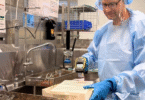Canada is hosting a major international conference on critical care from September 16 to 19, 2025, at the Vancouver Convention Centre.
Some people have called it the “FIFA World Cup or Olympics of conferences for critical care nursing.” It’s officially known as the 17th World Congress of Intensive and Critical Care.
Doctors, nurses, and researchers from around the world will meet to share ideas, learn from each other, and talk about how to improve care for very sick patients.
The event will showcase Canadian projects where frontline staff are rebuilding care that puts patients and families first, after years of disruption during the pandemic.
Five workshops at the conference are being led by Providence Health Care ICU staff. Each one started as a project in past Knowledge Translation and Research Challenge programs.
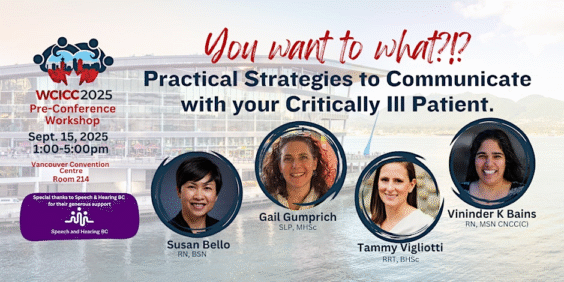
A new way of thinking in emergencies
Ten years ago, social worker Sarah Ho started a project about letting families stay in the room during resuscitation.
For a long time, families were asked to step out during CPR or other emergency care. This was done to protect them from seeing something traumatic.
But research shows that allowing families to be present during attempts to save a life helps them cope better with grief. Care teams also perform just as well.
“I had a few cases where families asked to be present,” Ho says. “Each time, it was meaningful for them to see the effort being made to save their loved one. The research supported this, so it made sense to me.”
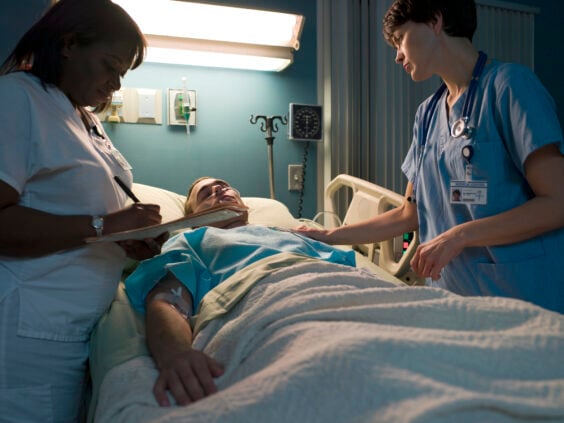
The facilitator role
Families don’t walk into a busy medical room on their own. The key is to have a trained support person on hand to guide them through it.
“You can’t just leave families alone during a medical emergency and think they’re going to be okay,” says Vininder Bains, Clinical Nurse Specialist and UBC professor who helped start the project. “Having someone there to support them makes all the difference.”
St. Paul’s Hospital social workers and spiritual care staff now stay with families during emergencies. Trained facilitators explain what’s happening in plain language, prepare families for what they’ll see, and stay with them the whole time. They also help position loved ones safely and give emotional support during and after the emergency.
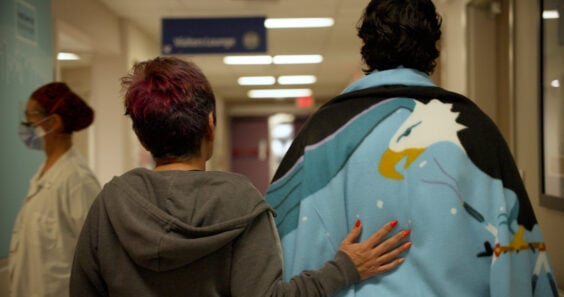
Staff training is built into the system. Webinars, scripts, and online modules teach new staff how to support families in the same way across all departments.
Staff turnover and different approaches across ICUs and surgical units means training has to happen often. But the message stays the same. Every family should be given the choice to be there during resuscitation. It’s a simple act that leaves a lasting impact.
“Families are part of the care team,” says Kim Woody, a spiritual health practitioner who helped write the decision support tool and train facilitators. “In a crisis, their presence matters. When someone is being resuscitated, family gives emotional and personal support that medical staff can’t.”
Progress made
Chart reviews from July 2024 to February 2025 show more families are being supported to stay at the bedside when they want.
“We’re not forcing families to stay during care, we’re just giving them the opportunity if they want to,” says Camille Ricketts, who helped with training and chart reviews, and will talk about the project.
Social work and spiritual care are answering more calls for support. In most cases where families are present, they’re being helped to stay.
“Now we have trained staff, a written policy, a clear process, and it’s just the way we do things,” says Bains.
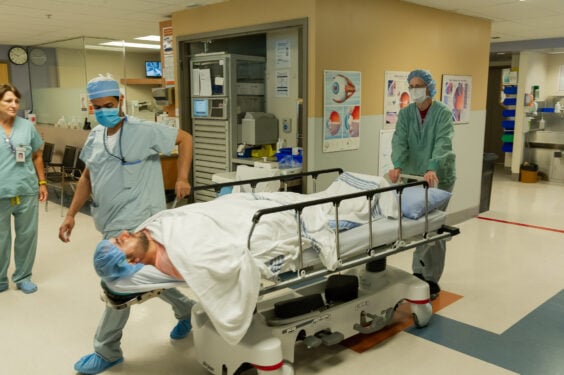
Safer response to drug overdose
Bains will present a new project that makes emergency care safer when patients overdose from inhaling toxic drugs.
“These incidents used to happen once or twice a year. Now they happen two or three times a week,” she says. “The change shows a shift in how drugs are used inside hospitals.”
More patients now inhale drugs instead of injecting them. This lowers the risk of infection but creates new challenges for staff during emergencies.
The overdose prevention site at St. Paul’s Hospital supports both inhalation and injection and is the only one like it in a hospital in Canada.
Dr. Ruth MacRedmond and clinical nurse specialist Serena Eagland are leading work on overdose care. The goal is to give patients a safer, non-judgmental space where they can continue receiving care while managing substance use.
Equity and communication in care
The conference will also share projects focused on communication and equity.
One project, presented by clinical nurse specialist Kathy Le and her team, looks at culturally inclusive end-of-life care. It asks staff to think about how different cultures approach death.
Respecting culture in critical care supports equity. This work helps staff provide care that respects each patient’s beliefs and practices.
“Everything we say and do can leave a lasting impact on patients and families,” says Le.
Bains guided the project, and family partners contributed important insights. One key finding was that healthcare has its own culture. It uses language, routines, and processes that can feel unfamiliar and intimidating to patients and families.
“We’ve learned to look more closely at our own culture,” says Bains.
The ICU Education team at St. Paul’s Hospital is also leading a project to teach simple ways to communicate with critically ill patients who may have trouble speaking.
Tammy Vigliotti, a respiratory therapist with 30 years in emergency and acute care, will lead a half-day workshop with other ICU professionals. The goal is to help patients in ICU communicate better, even when they’re very sick.
When patients can express themselves, staff understand symptoms more clearly, build trust, and can give care that matches what the patient wants.
“Helping ICU patients communicate is a basic skill every new staff member should learn,” says Bains.
Looking to the future
Many of this year’s projects show how PHC teams are rebuilding trust, improving care, and responding to new challenges.
“When the pandemic hit, families were kept at a distance. A lot of the great work we’d done around patient and family-centred care fell apart,” says Bains. “Seeing it return is like picking up the pieces.”
This year’s conference marks a shift in intensive and critical care. It will support teamwork across countries and show ICU leaders how to care deeply and effectively for patients, families, and each other.




